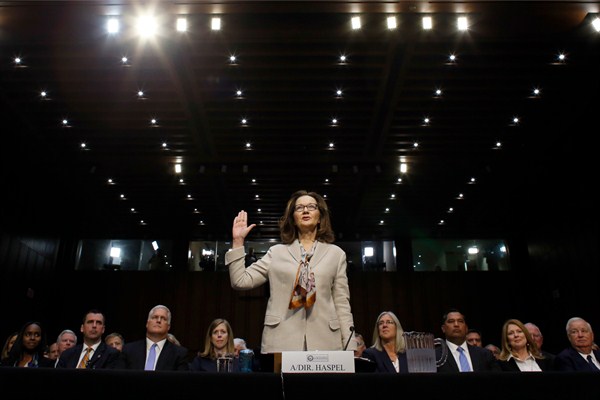In all likelihood, Gina Haspel will be confirmed by the U.S. Senate to serve as the next director of the Central Intelligence Agency. It is also likely that she will perform her duties competently and will be respected by the CIA’s workforce and the larger national security community. Nonetheless, her nomination and her record on torture, which was addressed during her confirmation hearing last week, will linger in the minds of those who worry about the direction of U.S. national security under the Trump administration.
Haspel’s long career in intelligence, along with her experience and reputation as a team player and effective manager, have won her the support of most of the living leadership of America’s major intelligence agencies. She is well regarded beyond the CIA, including by senior diplomats who served in posts where she was running CIA operations. Those relationships are not always easy, and many American ambassadors are never sure the CIA station chiefs operating alongside them are keeping them well informed. Haspel was considered better than most in working across the different subcultures of an overseas mission. Her earnest, Midwestern character came across well in her Senate hearing; she was not arrogant or pretentious, and for the most part she tried to communicate clearly.
That clarity, however, wore thin when she resorted to carefully scripted formulas about waterboarding and other so-called enhanced interrogation methods adopted by the CIA after 9/11, including at a secret detention facility in Thailand that Haspel ran in late 2002. She could not bring herself to judge in hindsight the “morality” of those tactics, repeating in a mechanical way that she supports the current legal parameters and the “higher moral standard” that would no longer permit the methods used after 9/11.

